
A HISTORY OF SUPPORT FROM THE ALLIANCE DOWN SYNDROME AWARENESS MONTH




A HISTORY OF SUPPORT FROM THE ALLIANCE DOWN SYNDROME AWARENESS MONTH


Cover: Prakash Jayabalan, MD, PHD with Liza Merenzon, Research Assistant at the Shirley Ryan AbilityLab
Executive Director, Dave Barton, PGA
The Alliance is a leader in access and inclusion - increasing the participation of people with disabilities in the game of golf
An interview with Prakash Jayabalan, MD, PHD, Physician Scientist Director, Nancy W Knowles Strength and Endurance Lab, Shirley Ryan AbilityLab, Associate Professor, Northwestern Feinberg School of Medicine.
A History of Support from the Alliance
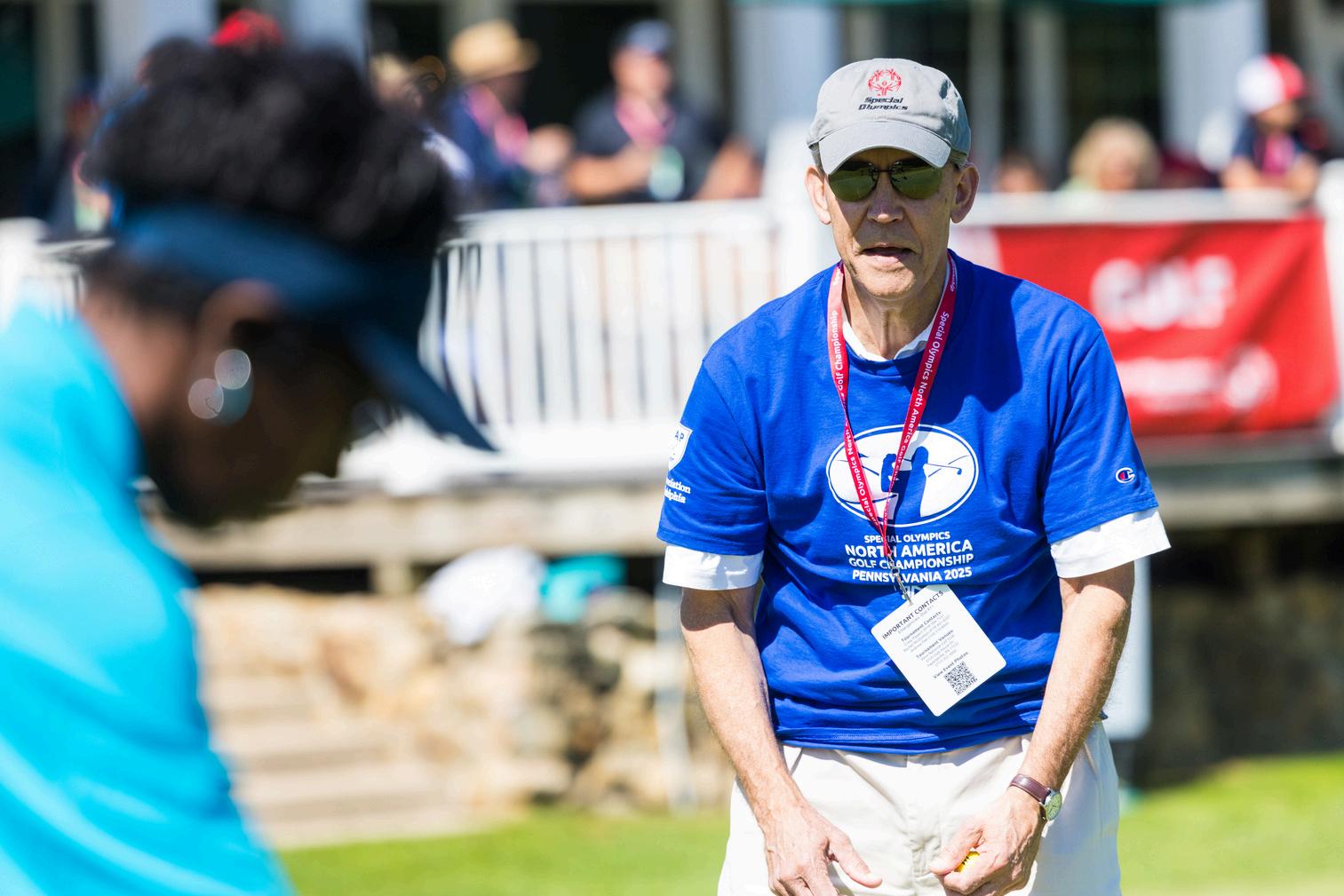
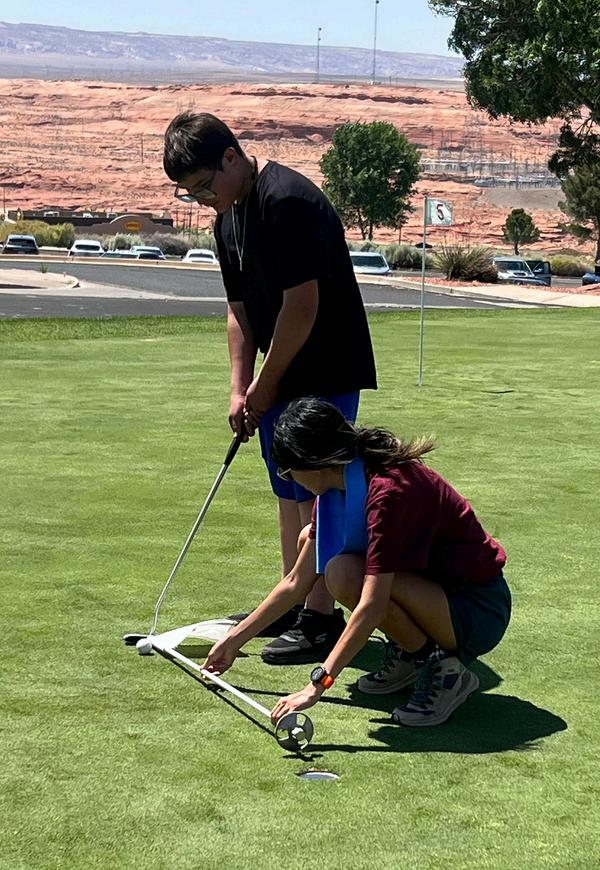
GAIN SPOTLIGHT
A networking platform and resource center.
EDUCATION HUB SPOTLIGHT
Do You Connect with Adaptive Golfers?
2025 SPECIAL OLYMPICS NORTH AMERICA GOLF CHAMPIONSHIP
Bringing together key players in the adaptive golf community in order to advance golf for all abilities
CAMP ABILITIES FOUR CORNERS: A DREAM FULFILLED
NEW GOLF SKILLS TRAINING EMPOWERS SPECIAL OLYMPICS MARYLAND ATHLETES
DE GARAVILLA, SENGUL VICTORIOUS IN 2ND GAP ADAPTIVE CHAMPIONSHIP
THE PEACHES AND CREAM FOUNDATION

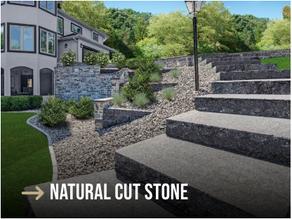
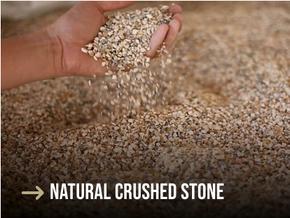
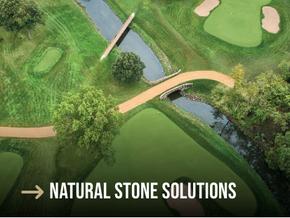

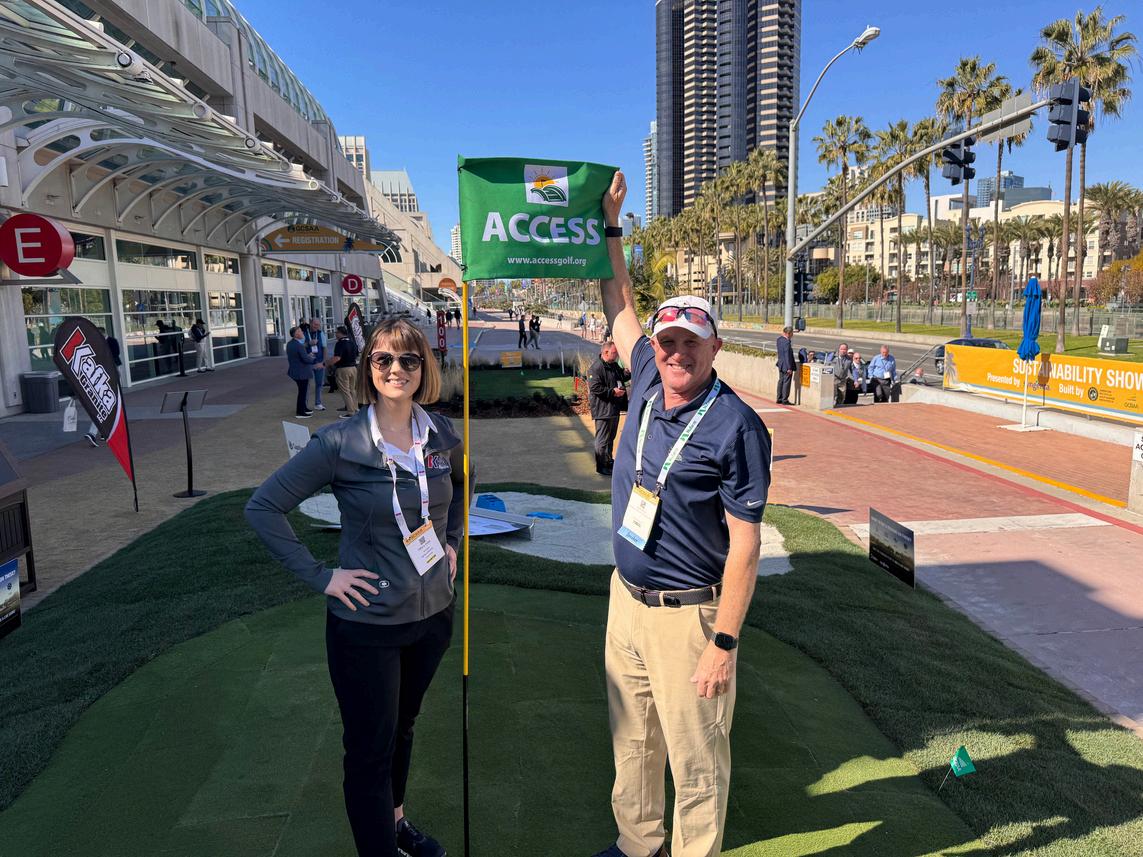
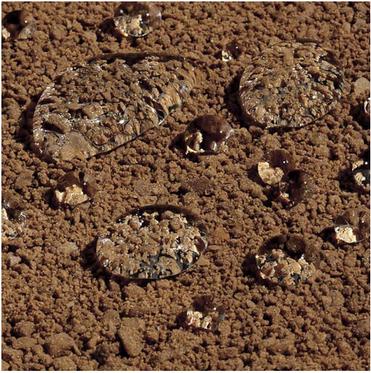
“Kafka’s support of our mission makes it possible for us to deliver education to the golf industry We are proud to be associated with them and the commitment they have to delivering products that improve accessibility to golf facilities around the country!”
Dave Barton, PGA, Executive Director, National Alliance
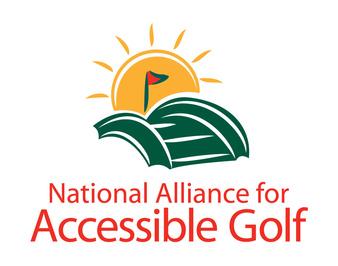
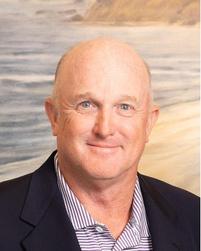
Dave Barton, PGA Executive Director
It’s October, so let’s start off with this extremely important question. Is there such a thing as “the leaf rule”?
While you are reviewing the rules, check out Rule 25, Modifications for Players with Disabilities We touch on Rule 25 in this month's Inclusion Influencer Interview with Dr Prakash Jayabalan who has been working with the USGA, EDGA and others to facilitate the application process for the WR4GD PASS for several years.
October is Down Syndrome Awareness Month and we hope you enjoy the story provided by Special Olympics North America who held the 2025 SONA Golf Championship August 25 - 28 at Penn National in Fayetteville, PA
Do you have a story to share for Golf Inclusion Monthly® Reach out and let us know!



Our mission is to increase the participation of people with disabilities in the game of golf
The National Alliance for Accessible Golf (National Alliance) is the leader in inclusion working to ensure the opportunity for all individuals with disabilities to play and participate in the game of golf Formed in the summer of 2001, the National Alliance is represented by professional associations within the industries of golf, recreation and leisure, and health care providers as well as organizations that advocate for inclusion and provide services to individuals with disabilities
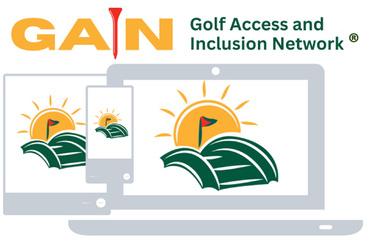
In addition to advocating for individuals with disabilities in print and online publications as well as social media marketing and interviews, the National Alliance engages in speaking opportunities at conferences and other public events. The Alliance also hosts GAIN, an adaptive golf community networking and engagement forum
The Alliance Education Hub provides guidance to golf course owners and operators seeking ways to make their golf courses and facilities more welcoming, accessible, and inclusive to golfers with disabilities, including programs to bring new golfers into the game.
The Alliance delivers resources including ADA guidance, policy templates and more to create accessible, inclusive, and welcoming environments.

Click to listen to the entire interview.
Excerpts from Alliance Executive
Director Dave Barton's interview with Prakash Jayabalan, MD, PHD, Physician Scientist Director, Nancy W. Knowles Strength and Endurance Lab, Shirley Ryan AbilityLab, Associate Professor, Northwestern Feinberg School of Medicine.
Path to Adaptive Golf... “I decided to pivot from orthopedic surgery into what I'm doing now which is sports medicine and physical medicine and rehabilitation That's where I got my interest in adaptive sports and trying to optimize physical activity in individuals with disabilities ”
Clinical Care and Research... “I wanted to help my patients more than just through my clinical care but, if I was to develop research studies that could optimize their health, that's what I wanted to do ”
WR4GD Management... “EDGA houses the eligibility assessments that I am involved in. The WR4GD PASS is the pass that players need to play in, I would say, the most competitive events in the US and worldwide. The pass tells the organizers of the event, or just tells individuals involved in adaptive sports, that you reach a certain level of impairment to play adaptive golf competitively at that level. ”
Why the WR4GD PASS... “If you're on disability, that does not mean that you necessarily have a level of impairment from your disability that you could play adaptive golf and that can be a little bit confusing and I completely understand So, when you have a WR4GD PASS, you have a certain level of impairment related to your disability. ”
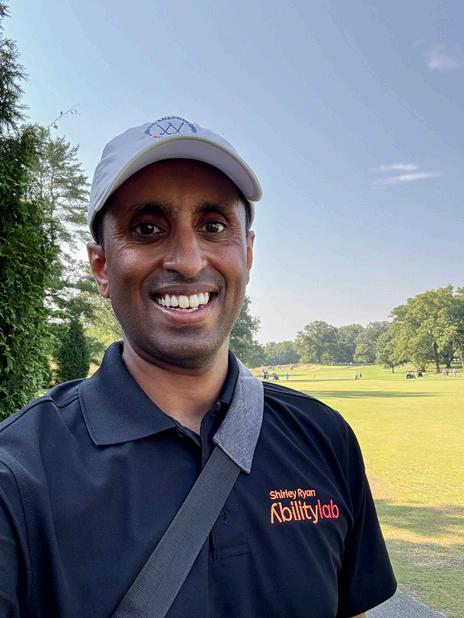
Getting Involved with Golf... “I actually did my sports medicine fellowship after residency at Northwestern, and one of my mentors in residency was the European Ryder Cup Team physician, Dr Roger Hawkes Dr Hawks was essentially my big mentor in getting involved in adaptive golf. ”
Golf and Health... “He (Dr. Hawkes) invited me and my Co-Fellow to come to the UK to cover a golf tournament and I had never covered a golf tournament itself This was the BMW Open, which is a huge event in the UK, and it was at Wentworth and that's when I got the bug…we really want to get involved and we want to show the health benefits of golf. ”
Ongoing Research... “One study that we're doing right now is actually trying to improve, some of the ways, some of the science behind the ways that we assess players for the WR4GD PASS. As I mentioned, typically we're doing sort of a neurological exam and assessing swing, but we're trying to improve the objective way that we do that
So, we're doing a study at the Shirley Ryan AbilityLab where we're actually using sensor technology to look at the relationship between a specific kind of impairment and how that impacts the golf swing. ”
The PASS Process: Step One... “The first step is essentially applying to EDGA and registering on that website To register, you need your information, your name, date of birth, etc You also need to upload a form of identification, like a driver's license, or a passport, or something like that. Then, typically, there needs to be a letter or some sort of medical documentation confirming your disability Usually, it's from a physician, even if it's something like you have a note from your physician It doesn't need to be super long, but just something to confirm that you have that disability that you're saying you have, okay?”
The Process: Step Two... “That (application) is reviewed by the central eligibility team in EDGA who review your documentation ”
The Process: Step Three... “An assessor in the UK, or in Europe, assesses it (application) and says, okay, now, I'm gonna make a decision. Does this person need an assessment, or can we give this person the PASS without an assessment? There are certain types of disability, particularly amputations, I would say, where you don't need an assessment We can see your amputations, obviously you use a prosthetic limb, you've uploaded a picture of it, they usually give you the PASS. ”
The Process: Step Four... “It’s usually with disabilities, neurological disabilities in particular, or if someone has, say, a missing finger or something like that that might need an assessment, because we need to assess how that disability or impairment, impairment being the result of that disability, how does that impact your ability to play golf?”
The Process: Step Five... “EDGA will then contact me to say, ’This person needs an assessment, ’ and that's when I get involved to try and figure out, okay, how are we going to get this assessment done? For example, we have an assessor in South Carolina if you live in that region of the country, I'll put you in touch with that assessor. We just brought on one in Kansas. We have assessors across the country…one big challenge is America's a vast country and we don't have an assessor in every state so, sometimes I can do a virtual assessment ”
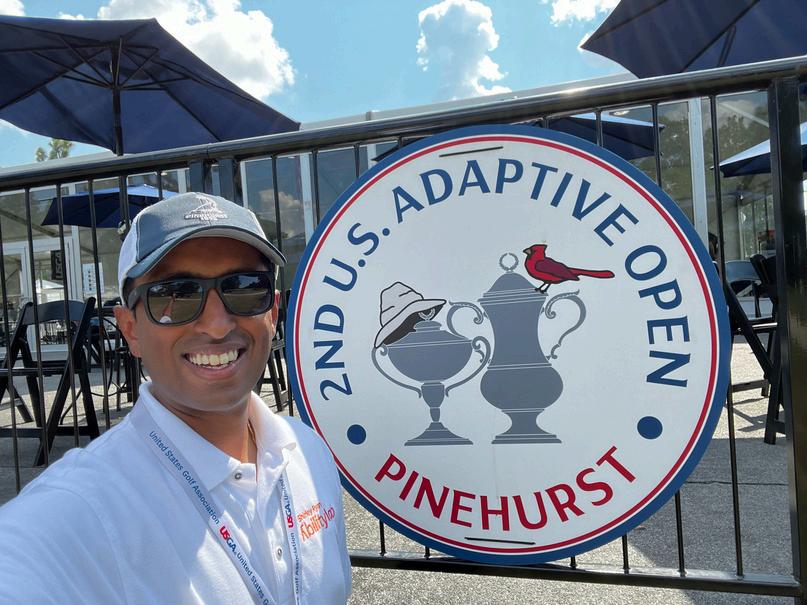
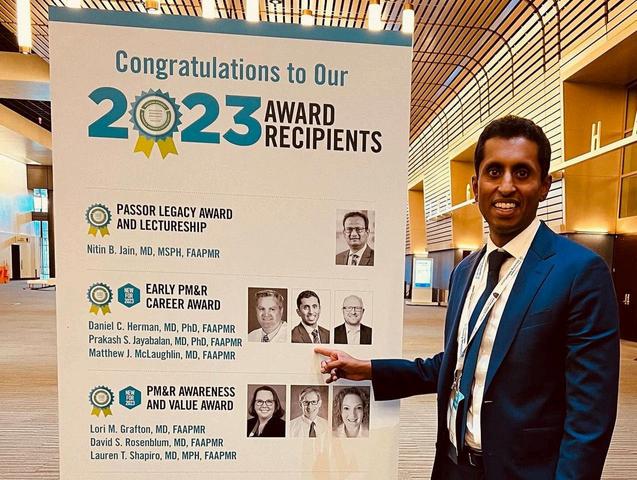
The Process: Step Six (Virtual Assessment)...“We typically get a physical therapist or a physician to do the physical exam on Zoom (preferred) or FaceTime and I am watching on the other end as the physical exam maneuvers are performed, and then I'm the one that signs off on whether you get the PASS or not ”
What Type of Physical Exam... “The other question I often get asked is, ‘what is the physical exam?’ Typically it's a neurological exam It's examining things like your strength, range of motion I also look at your walking and then also your golf swing as well, okay?
Interested in connecting with Dr. Jayabalan or participating in this study, please contact him at pjayabalan@sralab.org.
If we can do it virtually, that's great, the thing we prefer is obviously in person … particularly in those where we're not 100% sure even after the virtual assessment, but the virtual assessment is there for players ”
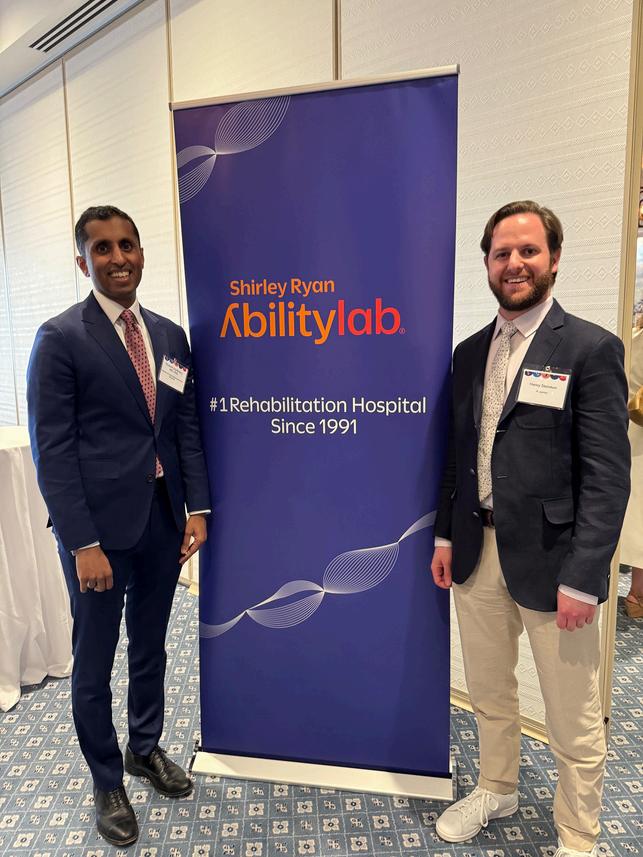
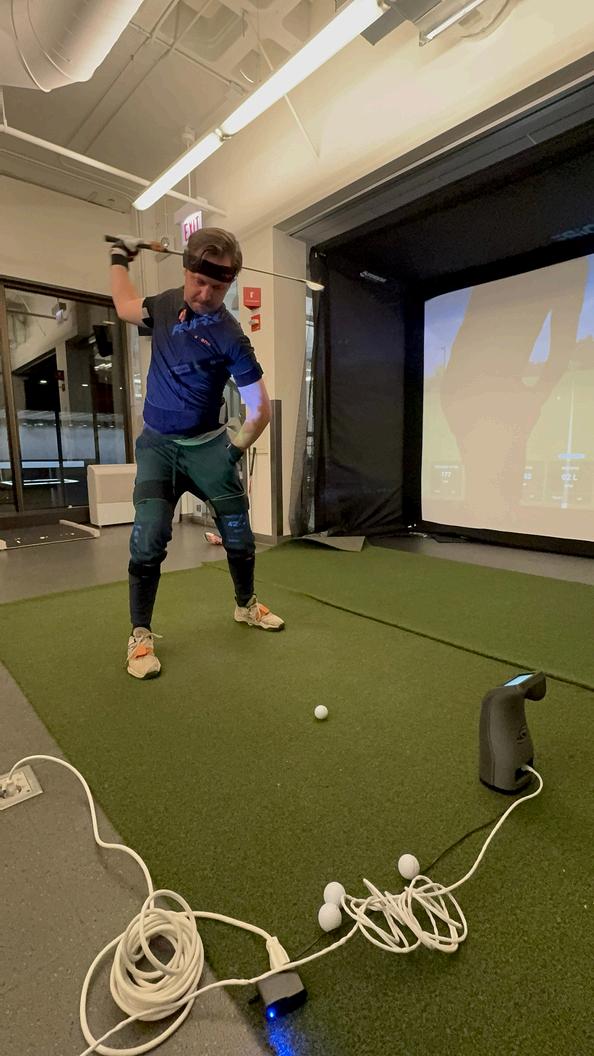
Process Timeline... “We're really encouraging players to give us a month's (minimum) lead time to make sure that we get this done in time, because all of the assessors essentially, we have day jobs, and so it is hard to get a physical therapist or a physician to be immediately available…some things for the players to think about. ”
Inclusion... “Why I'm so passionate about golf, not just an adaptive sport, but a sport, is that you can have someone with a disability play alongside an individual without a disability in a competitive format. I can't think of really many adaptive sports that you, or at least sports in general, that you can do that.
We’ve done some research actually of golfers with disabilities or adaptive golfers not being able to play golf (during COVID) How was it during the pandemic? How did that impact your social isolation, your loneliness? It had such an adverse effect on adaptive individuals with disabilities not being able to play golf. ”
Increasing Participation... “Because of some of the research that we've done, we've had access to the database of players and I think right now there's more than 4,000 to 5,000 players internationally playing adaptive golf [competitions] The majority are in the States, and in Europe, but, the game…and those are just players who've come to us for the PASS, or the WR4GD, who are registered. There are obviously thousands, countless more, who are playing the sport that don't want or aren’t interested in getting the pass”
Career Highlights... “It's been one of the highlights of my career, being involved in these sorts of events And I'm really, honestly, I'm not just saying this because you're interviewing me today, but I'm really thankful. Stuff like this wouldn't be possible without organizations like yours. You're really trying to make this sport accessible, and improving the knowledge of this sport for many people who don't even know that adaptive golf exists ”
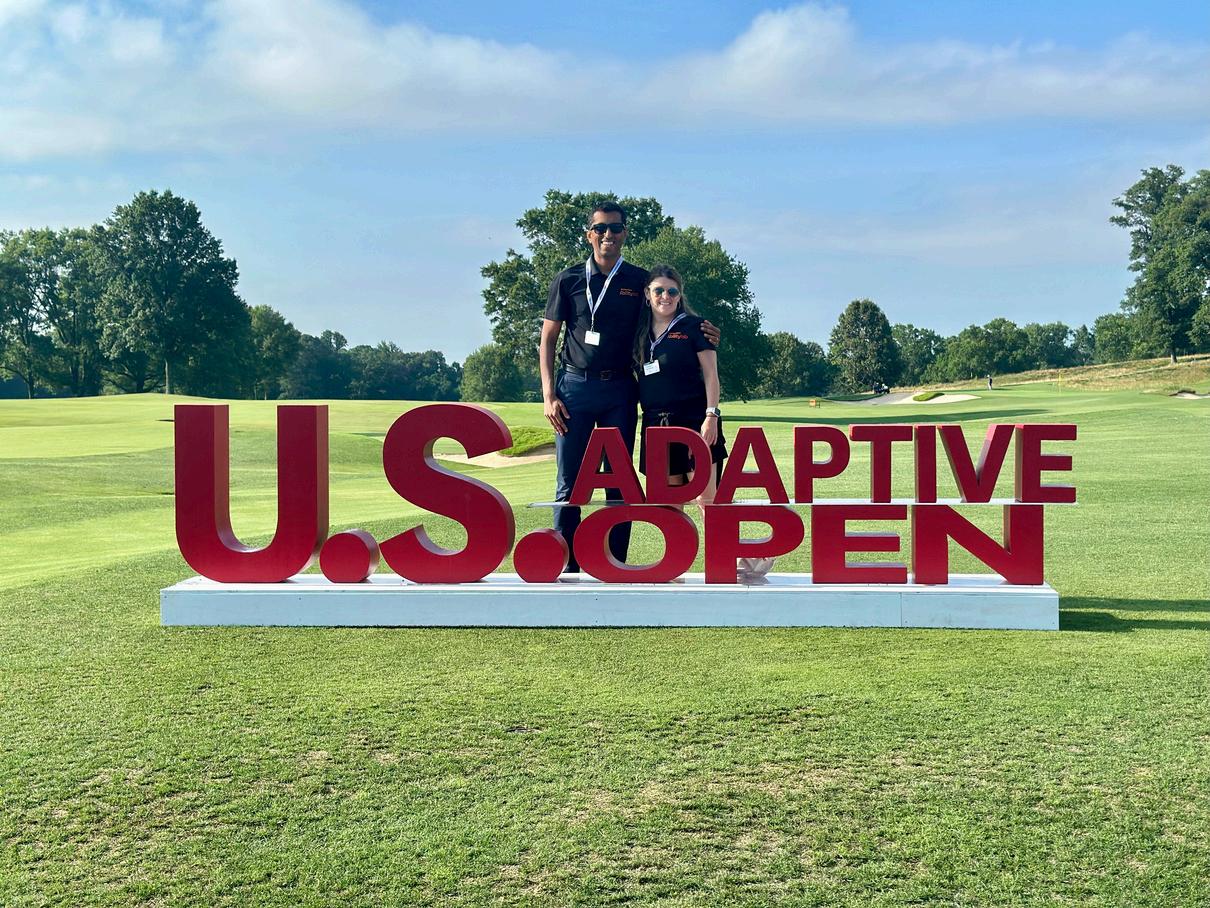
by Dave Barton, PGA
When the National Alliance for Accessible Golf was first established in 2001, the Special Olympics organization had been introducing sport to athletes with intellectual disabilities for over 30 years, initially through track and field competitions
1988 marked the first year that the Special Olympics National Invitational Tournament was concluded with golf being introduced into Special Olympic organizational programs in 1991. In 1995, golf became part of the Special Olympics World Games.
As you can read in this edition of Golf Inclusion Monthly, Special Olympics North America (SONA) recently concluded the SONA Golf Championships at Penn National in Fayetteville, PA with over 300 participants. Please read-up on the amazing work SONA is doing!
The National Alliance has had the privilege of supporting organizations such as the Special Olympics on both a National and local level since the inception of our grant program in 2010, made possible through USGA support to our organization along with the other leading golf associations in America. Through grants, we have also been able to support other programs around the country working with individuals with Down Syndrome, such as the I GOT THIS Foundation and the Down Syndrome Association.

This work continues and represents the core of what we do and we work daily to get back into a position to again help programs around the country with financial support One day at a time in the 501(c)3 world as they say!
Alliance Grant support to organizations bringing golfers with Down Syndrome into the game of golf exceeds $160,000 and represents approximately 15% of the total grants the Alliance has been able to deliver since our grant program commenced in 2010
As many of our valued readers and associates know, we placed our grant program on hold in 2022 as we pivoted to increase our ability and platforms to deliver the education, resources and advocacy efforts originally envisioned by academia and golf industry leaders shortly after the Americans with Disabilities Act (ADA) was enacted in 1990. These leaders gathered in the mid-90s for six national forums to address the fact that the ADA addressed the buildings on golf courses, but made no mention of barrier free access to the golf course itself
Getting to know and support organizations with high levels of Down Syndrome participants led by amazing people like Craig Pippert, Director, Sports Development at Special Olympics North America, Tracy Hupko, Executive Director of the I Got This Foundation, Joe, Jenny and Amy Bockerstette and many others is just one of the benefits of this amazing adaptive golf community.
Those mentioned above and countless more dedicate their lives to improving the lives of others and that is definitely something to also be “aware” of during Down Syndrome Awareness Month
We encourage you to learn more about organizations in your neighborhood working with individuals with Down Syndrome and to get involved
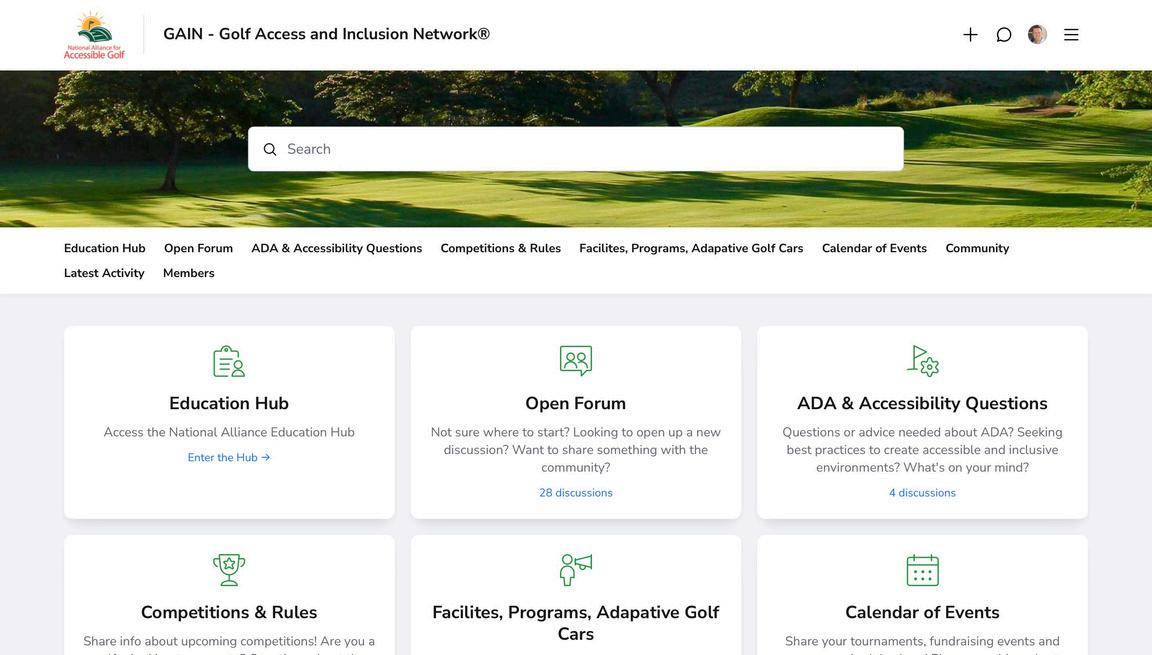
“GAIN is not simply a community networking platform, it is the top national resource and education center for the golf industry related to ADA compliance, education, and the game. Existing programs are growing and new ones are developing. But, can we say that golf facilities around the country are universally prepared? No … we can’t say that. ”
Dave Barton, PGA Alliance Executive Director
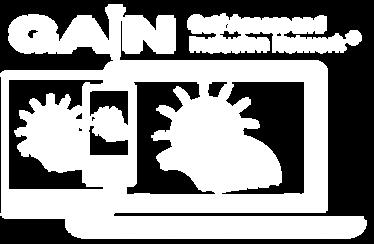
A networking platform and resource center for golfers, adaptive golf leaders, and anyone who believes golf is a game for everyone.
Where can you easily find a growing resource of hundreds of people who have experience starting and running adaptive golf programs, golfers of all abilities who understand how difficult it may seem sometimes to get started, and experts and supporters across the country who welcome the opportunity to advise and collaborate?
GAIN - the Golf Access and Inclusion Network® , that’s where. Through this free resource provided by the National Alliance, users can seek or provide advice, download usable resources such as policy templates and specific guidance related to the ADA and adaptive golf, and connect to the Alliance Education Hub
We invite you to join the growing GAIN community and we look forward to what you may learn, what you may share, and how we can all work together to bring more people of all ages and backgrounds into the great game of golf.
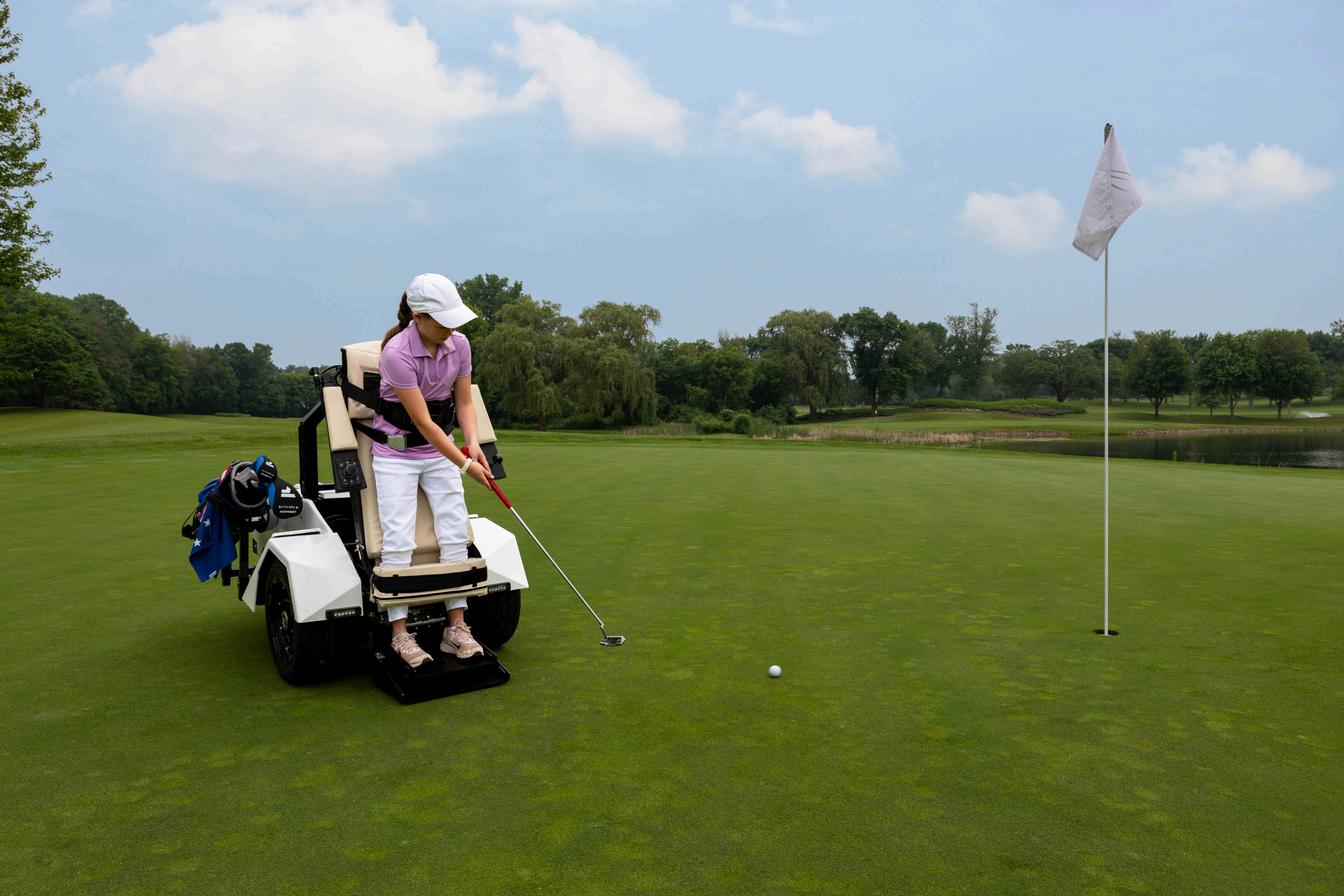
Adaptive Golf Cars: Assistance, not Resistance
From high-end resorts to the municipal or public facilities in your home town, golf courses across the country are embracing (not resisting) the opportunity to provide access and inclusion to golfers with disabilities through the improved availability of adaptive golf cars and adopting policies and procedures that welcome ALL golfers
The material provided in this lesson will help you better understand the benefits of adaptive golf cars for seated players and those with other mobility impairments who may require additional access. We'll also dispel the myths related to their use and course damage.
This lesson, along with GAIN - the Golf Access and Inclusion Network® , and additional courses within the Alliance Education Hub provide pathways to improved knowledge and professional development opportunities for golf facility leadership and staff.
Continue to the mircolearning lesson
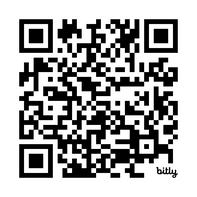
369
Enrolled Learners
439 EDUCATIONHUBSTATS
Course Completions
256
Training Hours Completed
The Alliance Education Hub is a FREE service available to anyone in the golf industry.
By Rachel McQuiston, Director, Marketing & Communications, Special Olympics North America
The 2025 Special Olympics North America Golf Championship (held August 25 – 28, 2025 at Penn National Golf Club in Fayetteville, PA) brought together key players in the adaptive golf community in order to advance golf for all abilities. Through intentional collaboration between Special Olympics North America, Special Olympics Pennsylvania, Penn National and the Golf Association of Philadelphia, more than 250 Special Olympics athletes and Unified partners from across the United States and Canada were provided a high-quality competition opportunity, demonstrating that golf can unite us all.
The event featured an exciting Opening Ceremony, preventative health screenings and multiple days of competition in all five levels of Special Olympics golf (individual skills, 9-hole traditional and Unified and 18-hole traditional and Unified). Special Olympics Unified Sports® competition brings together people with and without intellectual disabilities on the same team to train and compete alongside each other, proving that we are more alike than different
An event of this magnitude requires the support of multiple entities to ensure appropriate staffing, organization and event management.
Special Olympics North America and Special Olympics Pennsylvania co-led the organization of the event, including registration, marketing and communications, overall logistics and competition management. But they did not do it alone.
“Penn National was an incredible host venue for the 2025 SONA Golf Championship, ” said Craig Pippert, Director of Sports Development for Special Olympics North America “Under their leadership, our athletes and Unified partners received access to a world-class course that was maintained and ready for our competition. From prepping golf carts each day to storing all competitors’ golf bags, their contributions allowed the event to run smoothly ”
For the first time ever, Special Olympics Pennsylvania held a state-level golf championship,
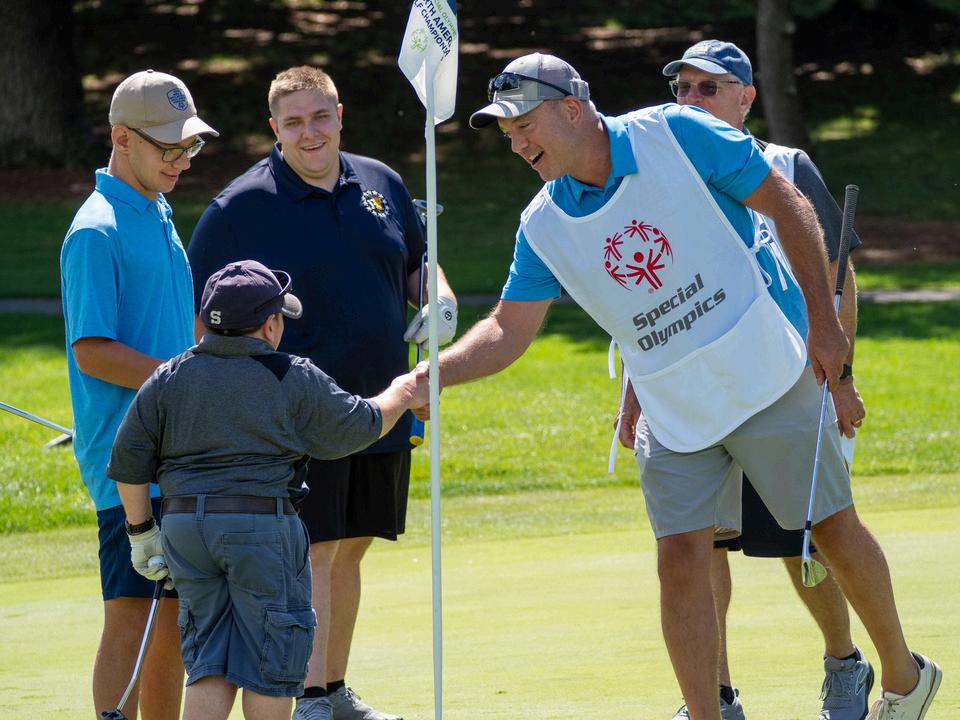
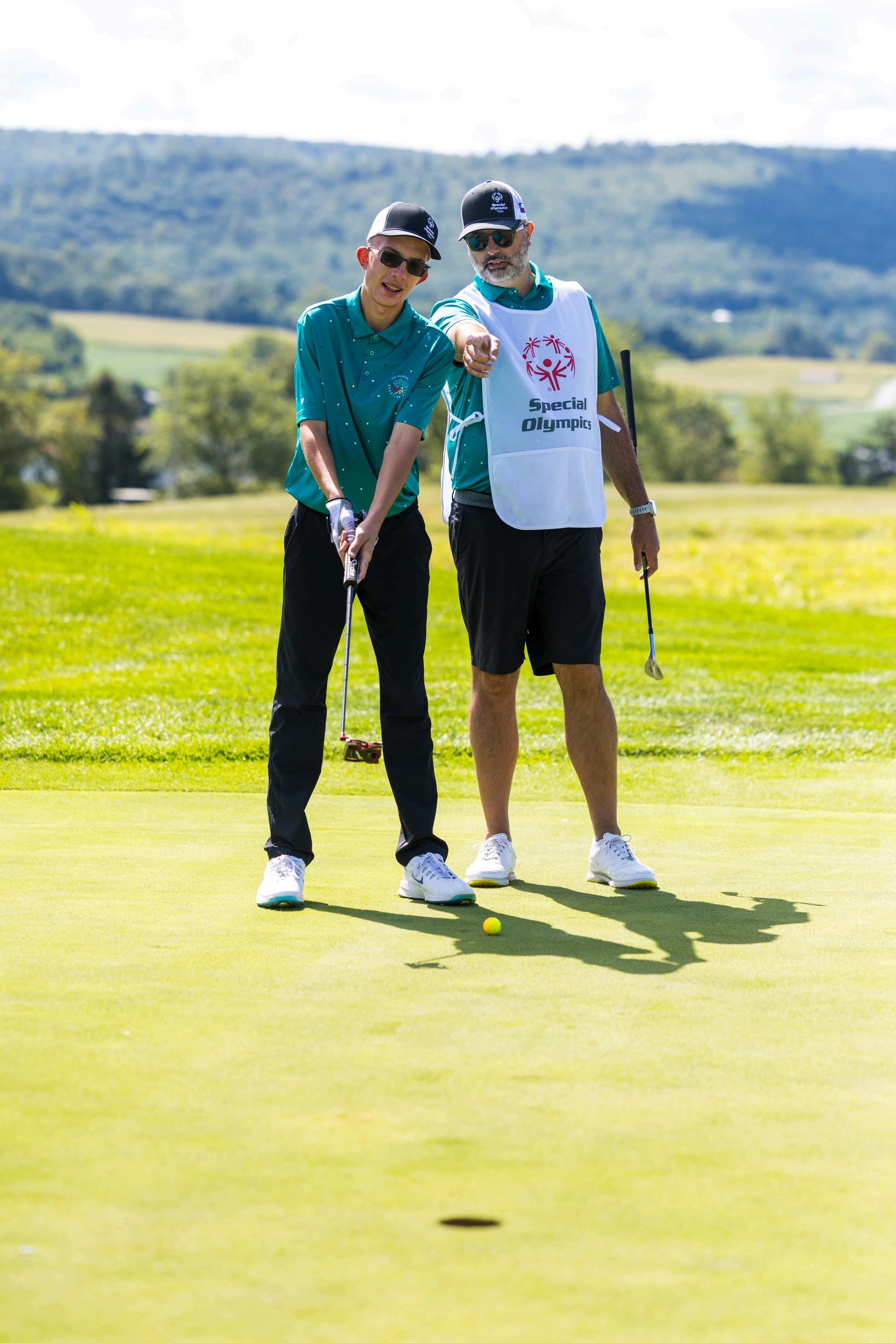
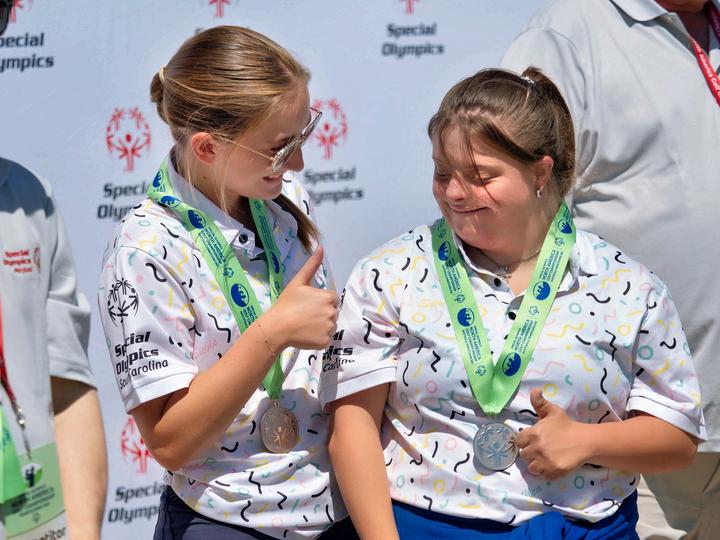
run concurrently with the Special Olympics North America Golf Championship, demonstrating the commitment to growing Special Olympics golf within the state As a testament to the legacy of hosting an inclusive golf event, Special Olympics Pennsylvania is already in discussions with Penn National to host next year’s state-level golf championship.
“The Golf Association of Philadelphia [GAP] was an incredibly valuable community partner for this event In addition to being the presenting sponsor, they engaged their staff directly with the event in key roles, assisted with the recruitment of key competition volunteers and officials and provided essential equipment, ” explained Pippert.
GAP’s involvement was not only very helpful to the overall event itself, but the organization will also play an integral role in ensuring that Special Olympics Pennsylvania’s golf program continues to grow. The groundwork has already been laid for GAP and Special Olympics Pennsylvania to work more closely in the future to not only grow the sport of golf within Pennsylvania but also develop additional opportunities for Special Olympics athletes to participate in adaptive events
In addition, all four organizations leveraged their connections within the golf community to guarantee that competition, the most important aspect of the event, was conducted in accordance with the highest possible standards, while still taking into account Special Olympics-specific rule modifications By bringing together an incredibly knowledgeable and passionate group of officials who donated their time and expertise,
the integrity of the sport was maintained throughout the event
“Without working together with our funding and community partners, the 2025 Special Olympics North America Golf Championship simply would not have been possible, ” said Pippert. “But that’s the incredible thing about Special Olympics and the golf community – there is a place for everyone to be involved There is a role for all of us in creating a more inclusive world that allows the abilities of people with intellectual disabilities to truly shine. ”
After four incredible days in Fayetteville, Pennsylvania, and with the support of the adaptive golf community, that message has spread just a little bit further
To learn more about getting involved with Special Olympics, please click here.
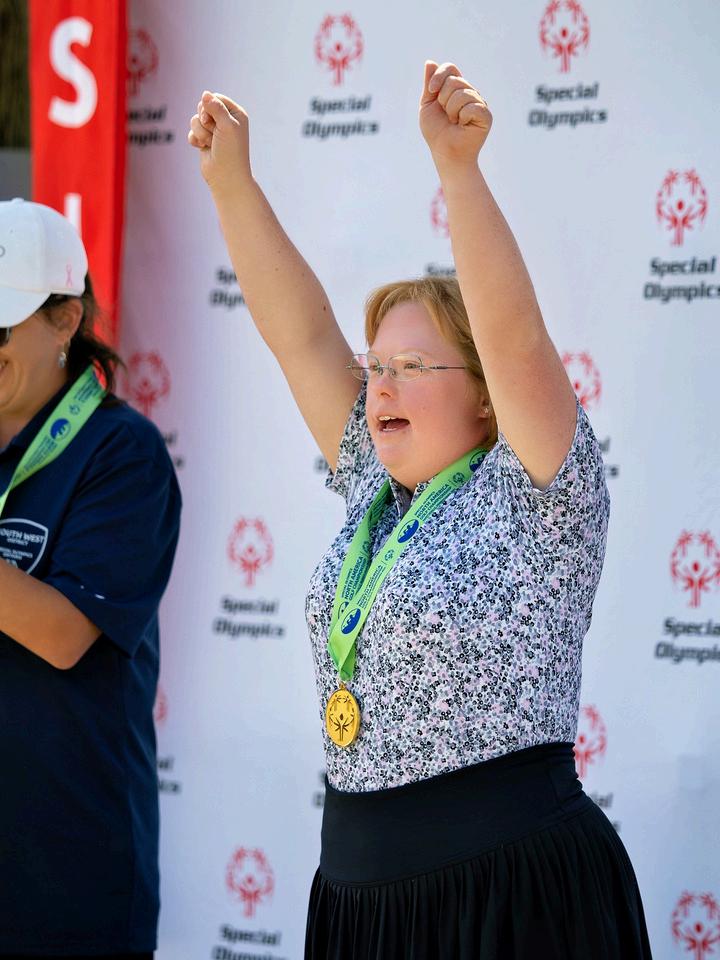
By Kathryn Hammond, VIBA-NAZ Board Member/Secretary, Camp Golf Instructor
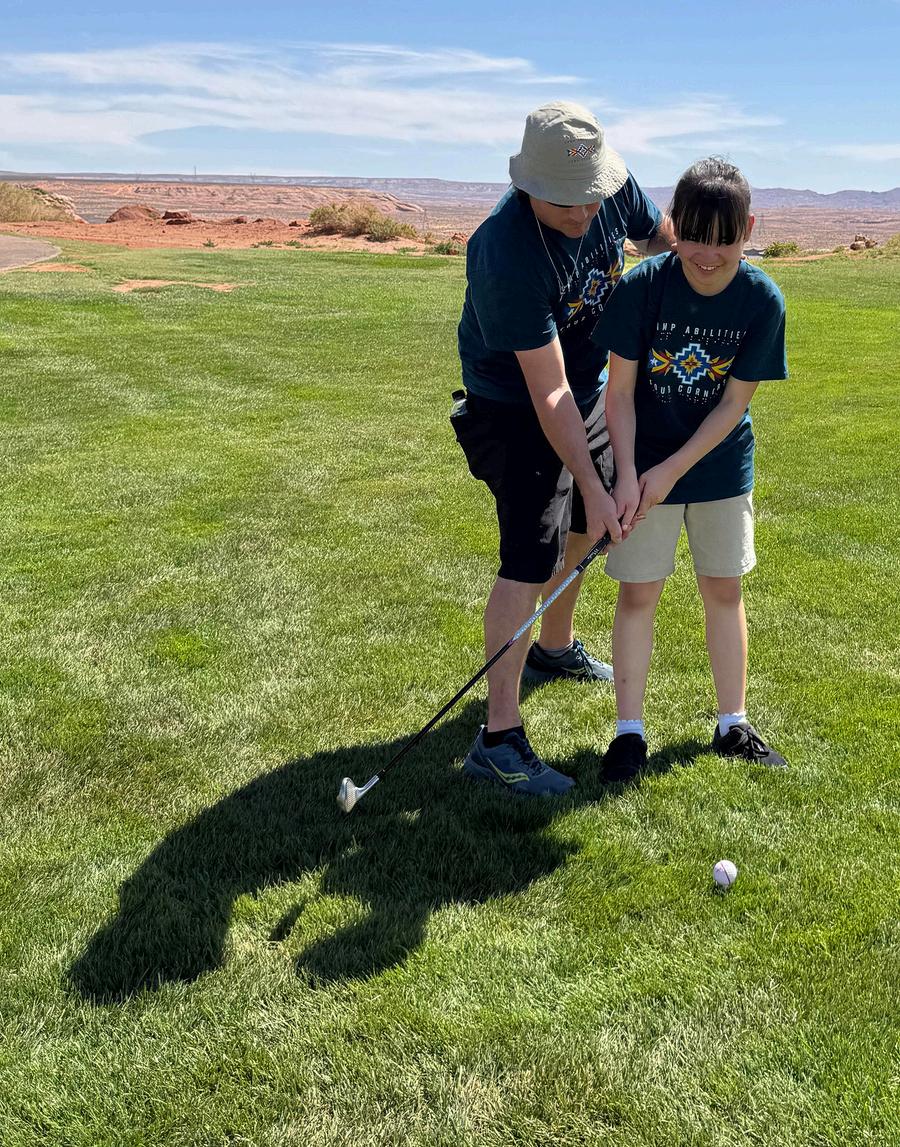
Visualize the mile-deep gorge that is the Grand Canyon. Now picture the multi-layered and colored sandstone mesas and bluffs of the high desert, juxtaposed against the bright azure wide-open skies, with a few white clouds drifting along, and scenic vistas stretching out for miles. Imagine the sparkling blue waters of the Colorado River and Lake Powell The towering San Francisco Peaks, sacred mountain of the Navajo, watch over all. The beauty and remoteness of this land triggered the dream of Camp Abilities Four Corners (CAFC)
Student athletes with blindness/visual impairment are often required to sit out physical education classes Those living in the Four Corners area (Arizona, New Mexico, Utah and Colorado) had to make the eight-toten hour drive to participate with Camp Abilities Tucson, but Vicki Numkena, a Teacher of the Visually Impaired, who had lived and worked on the Navajo Reservation, had a dream for a new Camp “in their backyard. ” She founded Visually-Impaired/Blind Athletes of Northern Arizona, a 501c3 which supports the Camp
Josh Atkinson, owner of the Cameron Trading Post in Cameron, Arizona generously offered to host this Camp at his hotel/restaurant, situated along the Little Colorado River, on the edge of the Navajo Reservation. This philanthropy has enabled CAFC to hold an annual Camp since 2022
Golf is one of our students’ favorite sports. Every year Jake Hunter and his crew at the Lake Powell National Golf Course have donated golf carts and practice balls on this beautiful course, overlooking Lake Powell and Glen Canyon Dam.
We introduce golf with a verbal description of the game and scaled-down tactile 3D representation of a golf hole, including a tee box, sand trap, and trees, using different textures for the fairway, green and rough Safety precautions are constantly stressed throughout the activity. Student athletes tactually explore golf clubs, and are given verbal descriptions of their differences and how/why they are used We employ a variety of teaching techniques including tactile
modeling, verbal cueing and physical guidance Poly dots and strategically-placed golf tees help athletes appropriately place their feet and aim the path of the club After practicing on the driving range and the putting green, groups get to play best ball on a par-3 hole.
This year we will honor a generous grant from the Wadsworth Golf Charity Foundation by holding a oneday golf clinic in Farmington, New Mexico, on October 11, for both students and their families. This is a great opportunity for the families to learn how we adapt golf, while learning the game themselves, enjoying spending time with their family, and meeting others with visual impairments
Participation with Camp impacts the lives of our athletes
Julian, a Navajo student athlete, had previously practiced on the range, but after he and his group got out on the course during Camp, and engaged in other sports, his mother shared that he had come home a changed child He was more open to talking with people and making friends. He will be attending our first-ever golf clinic in October, with his family.
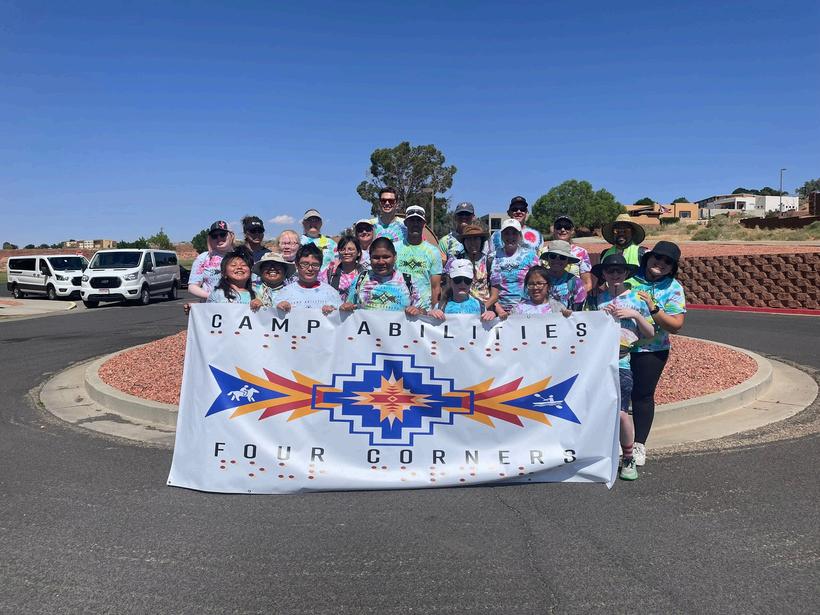
Kristy, another Navajo athlete, had never golfed prior to Camp She struggled but was determined to improve She overheard the coaches talking about Navajo male professional golfers and asked “Are there any female Navajo professional golfers? No? Well I’ll just have practice more and become the first!” Her Mom reported after attending Camp, she signed up for the crosscountry team, was more confident, made more friends and participated in a pageant Her teacher reported because of her increased confidence, Kristy experienced less bullying and was more included in her peer group She will also be attending our clinic, which shows Kristy’s commitment to becoming a better golfer.
Our 2025 Camp was Allen’s first experience with us After spending the afternoon on the driving range, he said he enjoyed it so much that after camp he would ask his grandpa to take him out on the course.
Camp Abilities Four Corners is a success story of bringing a variety of adaptive sports to young people with visual impairments living in the remote areas of the desert southwest Please visit our website at www campabilitiesfourcorners org for more information, photos, and how you can support us. We close by saying ahéheʹ which is “thank you” in Navajo!

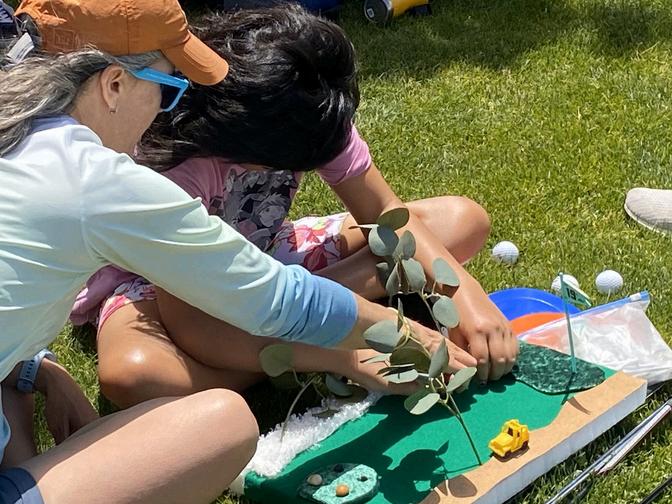
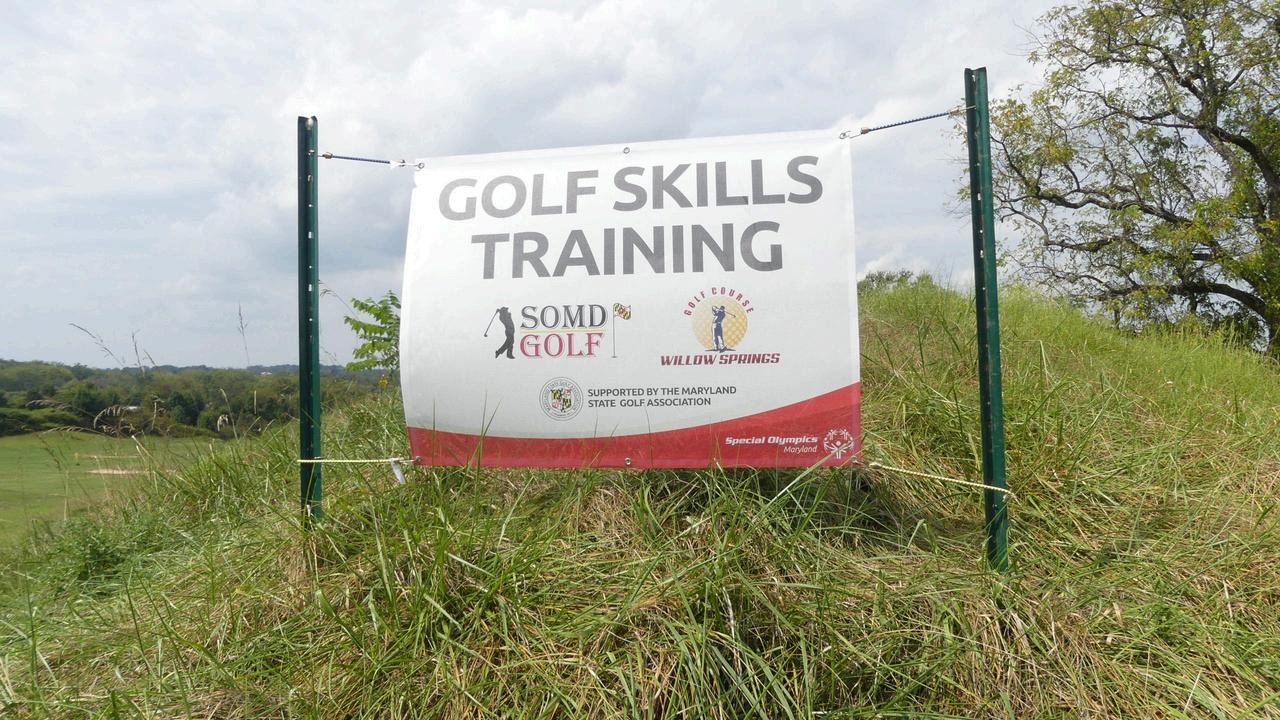
By Cal Lanouette, Manager, Marketing and Outreach, Maryland State Golf Association | msga.org
Lutherville, Md – Willow Springs Golf Course in West Friendship, Md , has been host to a transformative initiative, creating opportunities, inspiration, and connections for athletes and coaches involved in the Special Olympics Maryland community. The program, a first of its kind for the Special Olympics Maryland golf program, brings professional-level training to participants who typically only experience golf within their county or Special Olympics team
Special Olympics Maryland introduced an eight-week golf skills training program in partnership with Willow Springs Golf Course, and supported by the Maryland State Golf Association (MSGA), that was designed for both athletes and coaches The program ran every Saturday morning from August 2 to September 20, with alternative Friday evening sessions available Each weekly session lasts one hour and takes place outdoors on the course.
MSGA Board members played a key role in the development of the eight-week program Mani Madala, Sports Director with Special Olympics Maryland, said the idea stemmed from MSGA Board member Michael Cumberpatch, who initiated a
meeting with the MSGA “It was more like all the people coming together for a good cause, ” Madala described “We never had an outside training practice like this for golf this is a one-of-a-kind, first-time practice opportunity. ”
In addition to the MSGA’s support, the golf skills training session was made possible by grant funding “This program was possible through grant funding from Special Olympics International and the Jordan Spieth Family Foundation, ” Madala said. “Special Olympics Maryland was awarded this grant for the 2025 golf season as the Special Olympics International and the Jordan Spieth Family Foundation felt this was a good opportunity for the athletes, so that is how the opportunity came to life ”
Eric Slosek, the head golf professional at Willow Springs Golf Course, was quickly approached to host the program. Slosek is a certified adaptive physical education teacher, which made him a perfect candidate to operate the program Parker Tieperman, a golf performance professional and swing speed coach, just so happened to be the swing speed coach for another MSGA Board member, Armando DelToro, who had
asked him if he knew anyone who could help train Special Olympics athletes Tieperman discussed the idea with Slosek, and ultimately, the two agreed to take on the program at Willow Springs Golf Course
The curriculum is not static, but structured to develop fundamental golf skills in a progressive way: weeks 1-2 focus on putting; weeks 3-4 on pitching and chipping; weeks 5-6 on low and mid irons; and weeks 7-9 on hybrids and long irons Coaches and participants were given access to the lesson plans in advance via the Operation 36 golf app for the eight weeks.
“We decided to kind of model it off of the operation 36 style where we teach from the green back to the tee box, ” Slosek said He also emphasizes that flexibility and adaptation have been key “As any teacher knows, you can have a plan, and the athletes come in and go…we were able to modify and accommodate for the different levels of ability. ”
The progress that has been made over the eight-week golf program has not gone unnoticed Tieperman shared, “We’ve seen the rewards already, especially in the athletes. Just in them making contact with the ball, and they come out, they’re stronger, they’re more flexible. It’s just been so gratifying to see each one of them improve tremendously from the first session ”
The rewards of the training sessions are not only felt by the athletes involved, but by the coaches and unified partners as well. “A lot of the coaches and the unified partners are enjoying it even more than the athletes are because they’re getting their games figured out they’re able to take a lot from the practice session and practice on their own and become independent ”
Eric Slosek (right) works with Brian Bourdon (left) during the driving range portion of the golf skills training session at Willow Springs Golf Course
Success for this training program goes beyond scores and awards “For them to come down here on Saturday and spend another additional hour learning golf it’s kind of cool, ” Madala said Looking ahead, the team has aspirations of expanding this model to new counties in Maryland and bringing adaptive, inclusive golf to athletes everywhere in Maryland.
Slosek describes the long-term goals of the program: “To be able to build an infrastructure across the state, whether it’s with other golf professionals in Southern Maryland, Western Maryland, Eastern, Central, wherever…giving the same access that these folks have that are close by ” Slosek added, “Something that allows everyone to feel like they have access to the training and the expertise of the two of us, Parker and I, in our different fields ”
Beyond the game, it’s about relationships and memories. “The biggest thing is just the response and the warmth of not only the athletes, but the coaches and parents, ” Slosek reflected, remembering the excitement on “J J and John [Bogasky’s] faces when they came in with their silver medal. They were ecstatic. ”
“It’s been absolutely rewarding, ” Tieperman said. “I’ve learned so much from Eric and from the athletes and from other peers in my industry The best thing is seeing their smiles on their face at the end and watching them improve…minute by minute while we’re teaching them. ”
To learn more about the Special Olympics Maryland organization or to find ways to get involved, we encourage you to visit the Special Olympics Maryland website
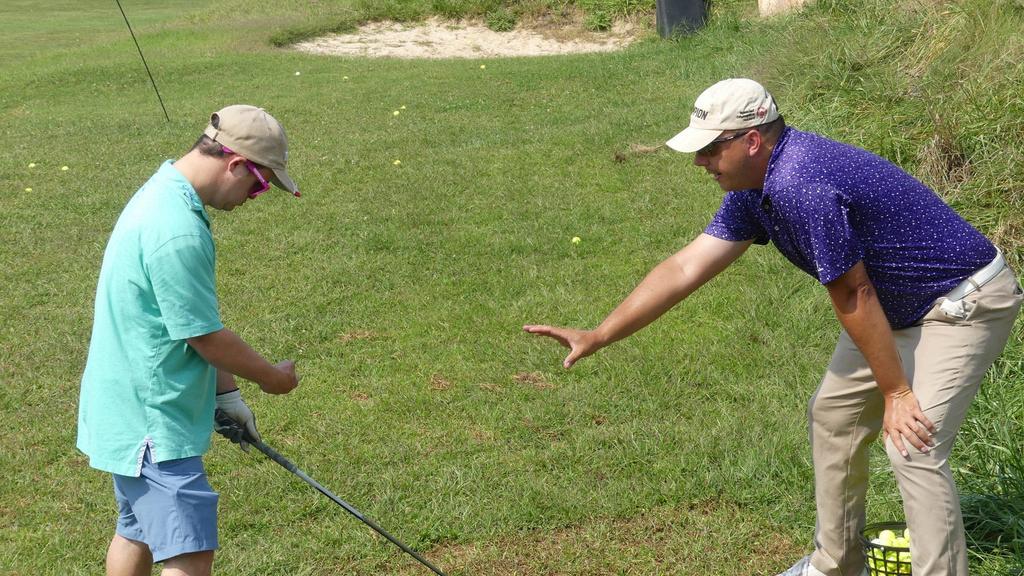
Sourced from gapadaptive.org | Published October 7, 2025
TELFORD, Pa. – The 2nd GAP Adaptive Championship forged two champions each with a historical significance.
David de Garavilla, a member of host Indian Valley Country Club, captured the Men’s Overall (par 72, 6,281 yards) title with a 9-over-par, two-round total. He outlasted Round 1 leader Jarrett Fultz of Buena Vista, Va , who finished 12 over
Cassie Sengul of Manassas, Va defended her GAP Adaptive Women’s Overall (par 72, 4,950 yards) title after finishing with a 23-over-par total. She finished 12 shots clear of Nancy Lee of New York, N.Y.
“For this to be my first big win, [and] for it to be here after playing Adaptive Golf for probably 10, 12 years is just really cool, ” de Garavilla, 42, of Telford, Pa., said. “As much as I’m proud of winning the tournament, I’m proud of my club [for] welcoming this tournament here ”
“It’s really special to defend my first adaptive win, ” Sengul, 19, said “I had a tough year in golf, so just being able to win this event again is really special for me. ”
The GAP Adaptive Championship is a 36-hole stroke-play event spread across two days The championship is a WR4GD points-eligible event. In addition to the overall champions, GAP crowned winners in 17 disability classifications
for results, photos, and more.
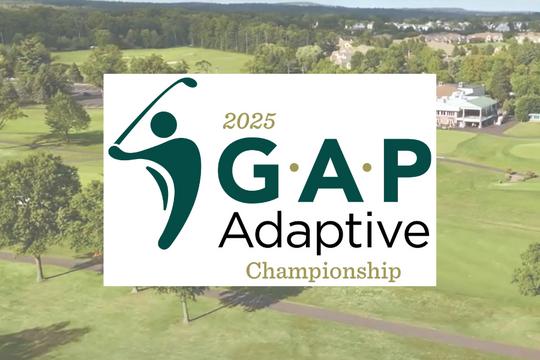
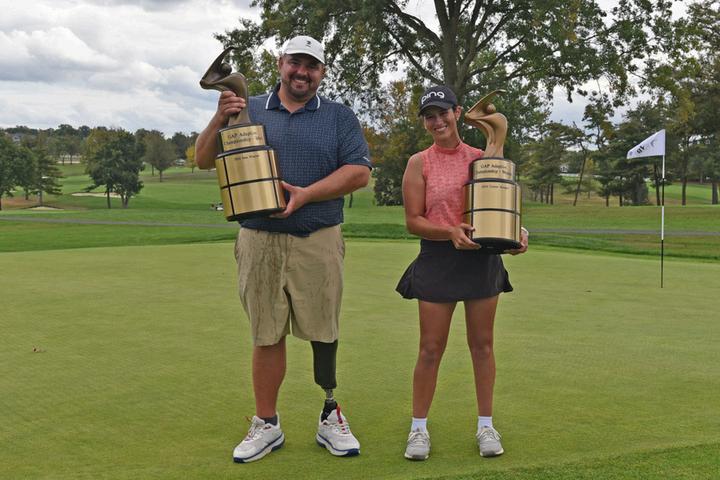
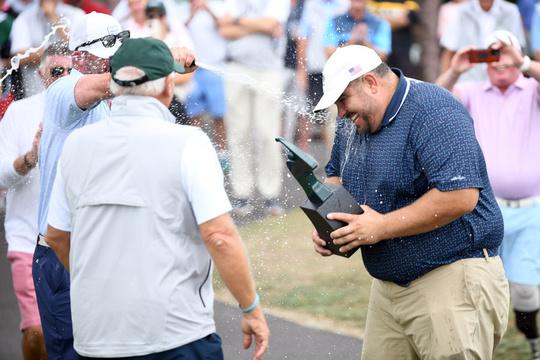
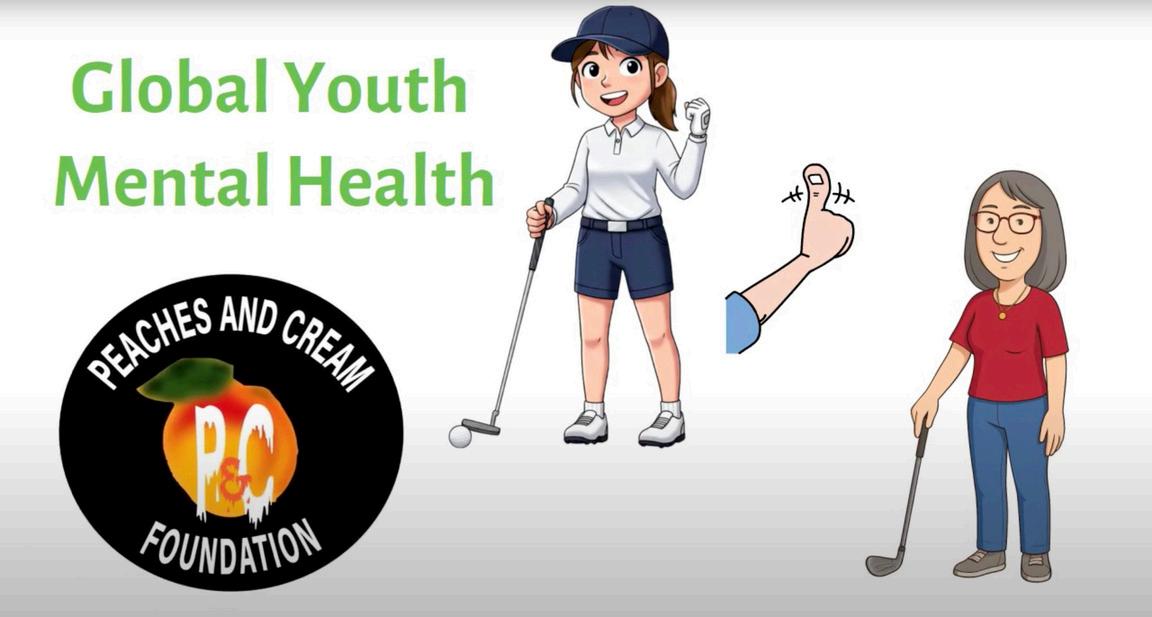
Augusta, GA August 7, 2025 See the Peach Beyond the Eye. The Peaches and Cream Foundation is proud to announce the appointment of collegiate golf athlete and mental health advocate Marine Legentil as its inaugural Global Youth Mental Health & Athletic Inclusion Spokesperson
Marine, a student-athlete at Augusta University and business intern with the Foundation, brings a story of extraordinary perseverance. Born blind in her left eye, she defied the limitations of impaired depth perception to become a champion golfer earning honors such as South African Women’s Amateur Champion, First Team All-Southland Conference, and Southland Conference Newcomer of the Year. Her athletic success, despite visual challenges, is a testament to her resilience and reflects the Foundation’s mission of removing barriers for underserved youth
Marine’s journey has taken her from France to South Africa and now to the United States She currently competes for the Jaguars Women’s Golf Team while pursuing a degree in Business Administration. Her lived experience as a global citizen and her advocacy
for inclusion make her an exceptional choice to lead conversations around sport, wellness, and access.
“I’m honored to represent an organization that champions both mental health and athletic inclusion, ” said Marine Legentil “Golf changed my life and I’m committed to ensuring that every young person, regardless of their background or struggles, has the opportunity to thrive. ”
As spokesperson, Marine will amplify youth voices, promote inclusive participation in athletics, and support the Foundation’s efforts to champion mental health globally sparking hope in communities where opportunity is often out of reach.
For over 20 years, the Peaches and Cream Foundation, a 501(c)(3) nonprofit organization, has empowered youth, college students, and families through education, mental health support, mentorship, and internships

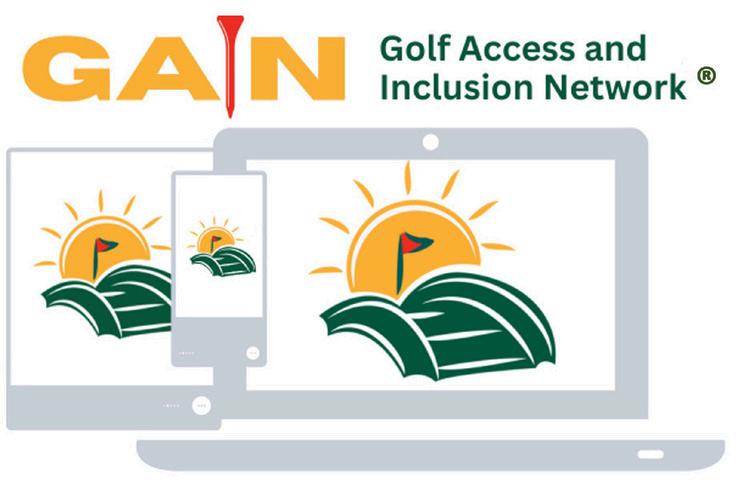
GAIN is your community ... a free networking forum to foster better access to adaptive golf experts across the country and resources to serve the community of golfers with disabilities and those that lead and support these efforts.
All are welcomed on GAIN ... those seeking information about adaptive golf, the ADA and more with those that can provide the answers.
ADA & Accessibility
Competition & Rules
Facilities, Programs, Adaptive Golf Cars
Calendar of Events
Open Forums

